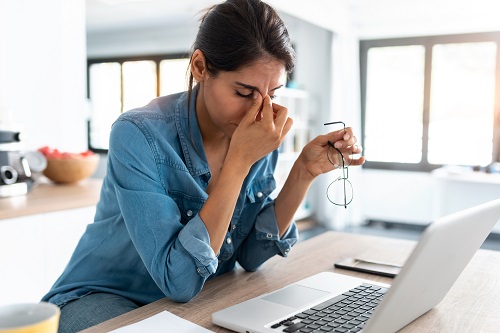NHS stress test and mental wellbeing
NHS stress test and coping with stress
Stress is something that many individuals experience, in fact, recent statistics show that approximately 526,000 workers in Britain suffer from work related stress, depression or anxiety1. Stress can lead to feelings of being unable to cope, worry and anxiety. Stress can affect you in many ways, including physically and mentally, such as: troubles sleeping, high blood pressure, headaches and depression.
Using the NHS Mind Plan tool with ask you questions related to stress and related to other areas of your mental wellbeing.
It is important to try and relieve feelings of stress whenever you can to help you to cope with it as reducing stress can help you to feel happier and even improve your overall health.
Look at how these 5 top tips can help you on your path to coping with stress:
1, Eat well
Having a healthy and balanced diet can help improve your levels of stress, eating plenty of fruits and vegetables will give your mind and body loads of nutrients and can help with the groggy feeling associated with stress and can make you feel more energetic!
What to do:
Ensure you’re eating balanced and healthy foods, incorporate lots of fruits and vegetables into your diet and ensure you are eating at least 3 meals a day. Also, keep an eye on your portion sizes and be sure to not over indulge in high salt, sugar or fatty foods.
Visit our Eat Well page for more information.
2, Be Active
Physical activity is a great stress reliever, from going to the gym to having a walk in your local park, exercising improves your overall health and your mood by releasing endorphins that make you feel good and it can reduce your blood pressure levels!
What to do:
The NHS recommends at least 150 minutes of exercise per week so be sure to get moving wherever you are, from joining your local leisure centre and going for a swim, to doing at home exercises, there are plenty of ways to start moving more.
Visit our Be Active page for more information.
3, Quit smoking
Although you may feel less stressed when smoking, smoking actually leads to more feelings of anxiety and tension. The feeling of stress relief from smoking actually comes from the nicotine in the cigarette, which alters chemicals in the brain. When going through withdrawals, the lack of nicotine increases irritability and anxiety. It is the act of smoking that causes these stressors in the first place, so, to reduce them, smoking has to be stopped completely.
What to do:
Although not an easy thing to do, there are plenty services and help available if you feel you’re ready to stop smoking, visit your local GP, One You Merton stop smoking clinic or speak to a stop smoking advisor for help and support.
Visit our Quit Smoking page for more information.
4, Drink less alcohol
Alcohol is a depressant which slows down the brain and central nervous system. Despite possibly reducing stress in the short term, over time, heavy drinking can lead to contributing to feelings of stress and anxiety.
What to do:
To help you control your alcohol intake it helps to be aware of government alcohol guidelines and drink in moderation. Keep track of your daily and weekly alcohol intake, this can be done by downloading an app such as the ‘Days Off’ app to see how much you drink and how it affects you.
Visit our Drink Less page for more information.
5, Sleep well
Getting a good night’s sleep can really benefit you in alleviating stress. Sleep allows our minds to recharge and our bodies to rest. Not sleeping enough can affect memory, judgement and even mood. Having less than 8 hours of sleep per night can increase irritability and stress levels.
What to do:
To ensure you’re getting a good night’s rest, aim to get 8 hours of sleep every night; why not create a routine in which you can ensure you have a good night’s rest.
Visit our Sleep page for more information.
For more support with mental health visit the NHS Every Mind Matters page.
1 (2018). Retrieved from http://www.hse.gov.uk/statistics/causdis/stress/stress.pdf
Blog written by Sinead Simpson
Health Psychology Masters student
View posts by category:
